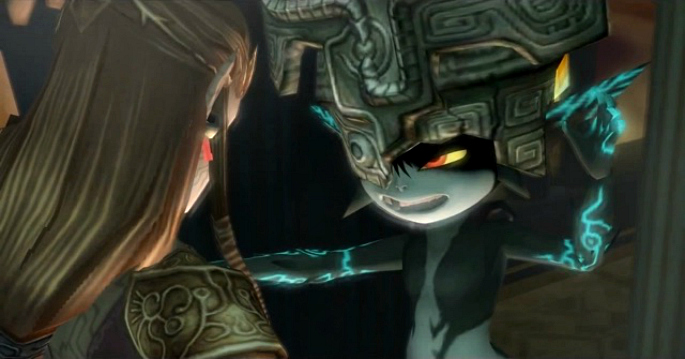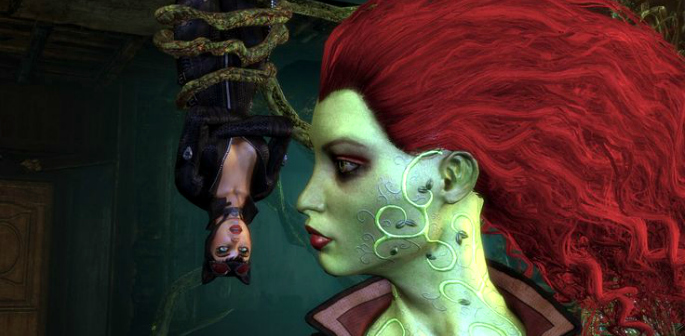"Games are usually focused on the alpha male protagonist"
Issues of gender inequality and sexism plague every walk of life; from careers, business and politics.
But female representation in media and entertainment is a continuous debate that is gaining more and more momentum.
While many argue that film and television see a balance of both men and women on screen, others insist that female characters are often depicted in film because of their indirect relationship to the male characters. Interactions and relationships between women away from men are limited.
In 1985, a cartoonist, Alison Bechdel highlighted the issue of female representation on film in a cartoon strip called Dykes To Watch Out For.
Later coined as the Bechdel Test, this became the benchmark for films and television, and a common standard to adhere by.
As shown in a 1985 strip, this special test has three requirements for a movie to fulfill:
- It has to have at least two women in it.
- Who talk to each other.
- About something other than a man.

Now, while this may appear to be a very simple list of requirements for films to pass, the number that actually do is shockingly low.
The list of films that pass the Bechdel Test is miniscule compared to a list of those that don’t.
This test doesn’t ask for much, and the commentary about it with regards to film is abundant. However, when you apply it to video games, things get interesting.
This is mainly because games aren’t as dialogue driven as films, alongside the fact that games are usually focused on the alpha male protagonist.
So, of course this affects the amount of games that can pass the test.
DESIblitz explores which video games actually manage to pass the Bechdel Test through their representation of female characters.
Bayonetta

Now, the makers of this video game do get a lot of stick for creating Bayonetta as a character that is extremely sexualised and essentially a walking, talking male fantasy.
However when it comes to female interaction, the game passes with flying colours.
Bayonetta and her nemesis/best friend Jean talk to each other constantly throughout the game. Although a lot of it can be considered as plain nonsense, it does pass the Bechdel Test.
Mass Effect

Mass Effect does make things tricky for the Bechdel Test because players have the option of playing as a male or a female protagonist.
So, while some of the conversations will pass, others will not.
One of the interactions which does ensure that it passes the Bechdel Test is the heartfelt yet disturbing scene between Dr Liara T’Soni and Matriarch Benezia.
The scene perfectly highlights the complicated relationship between a brainwashed mother and her daughter.
Legend of Zelda: Majora’s Mask
Legend of Zelda is an interesting addition to this list. As a series, it generally does not pass the Bechdel Test.
However, in Majora’s Mask, two sisters, Romani and Cremia, talk to each other about things that are certainly not related to boys.
They talk to each other about the ranch and taking care of it, and they argue a lot (like real sisters) about going to the carnival.

Legend of Zelda: Twilight Princess
This installment into the Legend of Zelda series also passes this test through Midna and Zelda’s interactions.
The two discuss Midna being a questionable person and sketchy, but they also talk about her suffering and confide in one another.
Zelda and Midna also have very deep discussions about how light and dark need one another, and that plays in very well to the running theme of light vs darkness throughout the game.
Mirror’s Edge

By playing Faith Connors and parkouring around and delivering messages, there are many unavoidable encounters with other female characters, and conversations that have nothing to do with men.
Faith also talks to Celeste and Kate Connors many times about a conspiracy throughout the game, which aids the plot and also further this game’s strength when it comes to the Bechdel Test.
Lara Croft Tomb Raider Trilogy

It’s not much of a surprise that the Tomb Raider trilogy passes the Bechdel Test, considering it features a strong female protagonist, and although very sexualised, she still gets the job done.
In the games, Lara Croft and Anaya talk to each other about Amanda Evert.
There are also many scenes scenes with Lara talking to Amanda and Natla about the magical artifacts alongside their own angst.
The Witcher 2: Assassins of Kings

In The Witcher 2, there is a scene when the sorceress Triss Merigold speaks to her companion Philippa Eilhart.
They talk, not about men, but the political state within the Northern Kingdoms.
While there are also other popular video games that do pass the test, it is important to take into consideration that the Bechdel Test is not a feminist test, nor is it the be all of end all of female representation.
It is there to highlight an important thing, and that is that in various forms of media, women do not talk to each other, and when they do it’s usually about men.
The same applies to video games, but due to the nature of how games progress, some women never even speak, let alone talk to one another.






























































